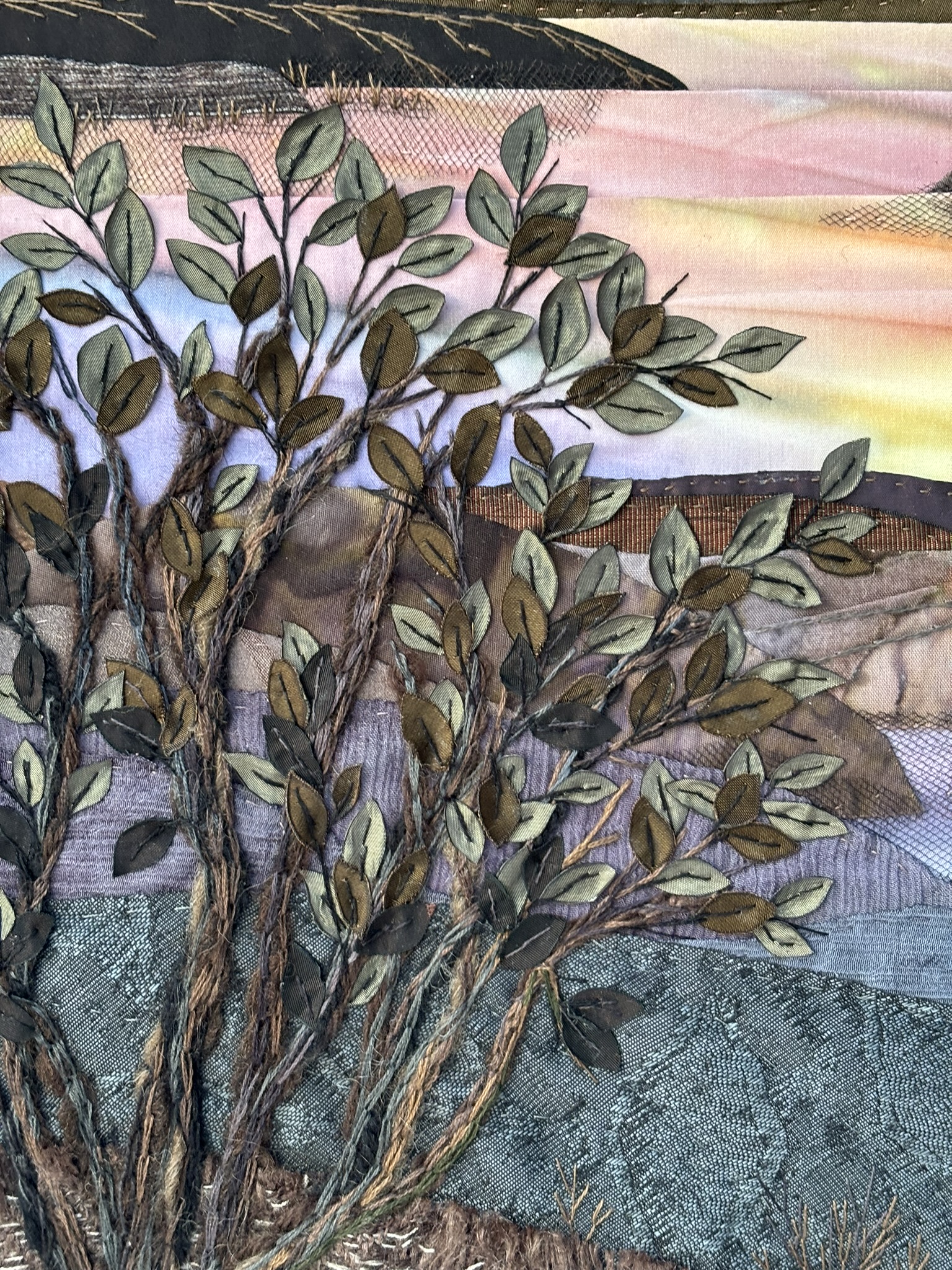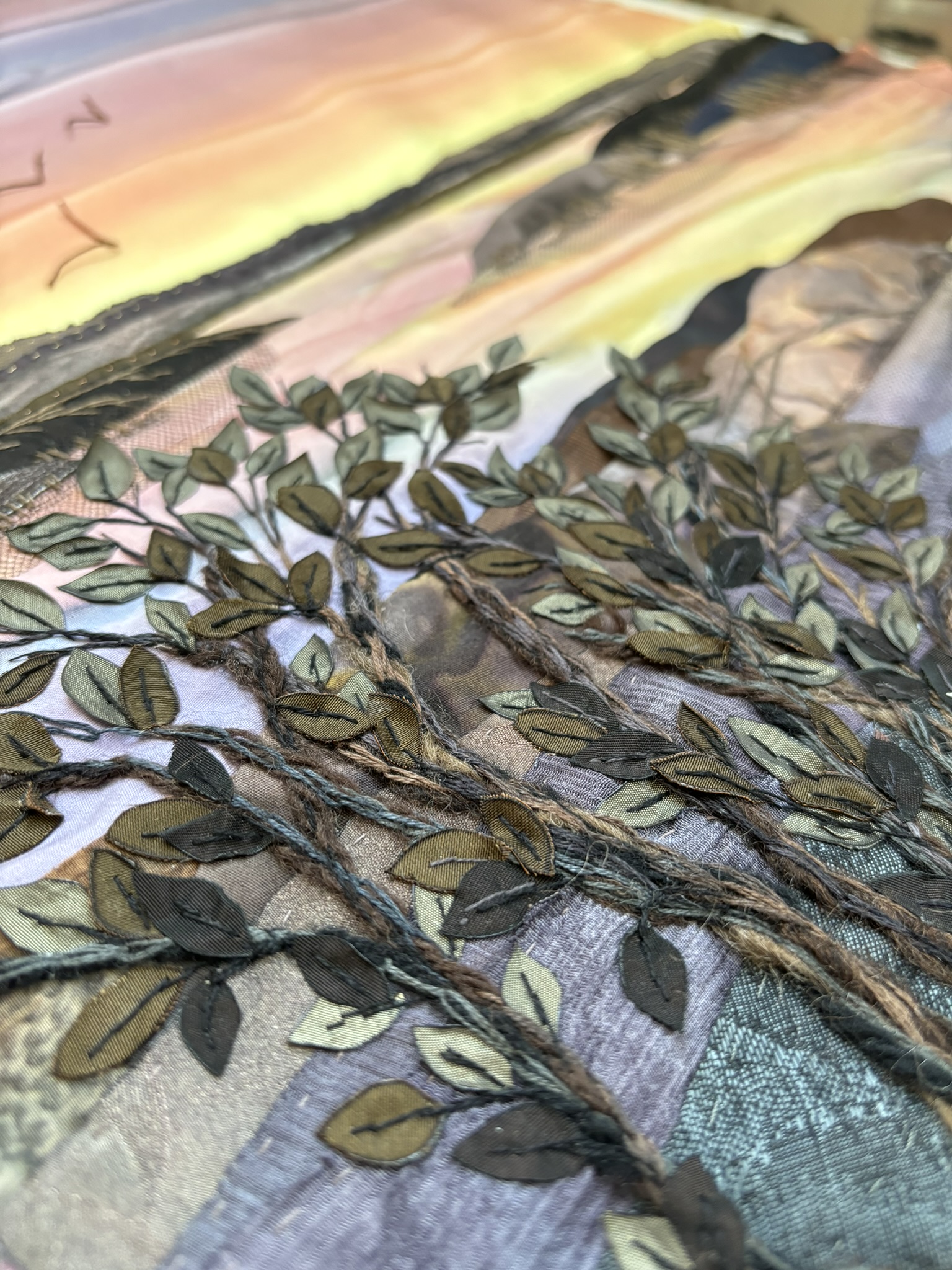Adding Synthetic Fabrics to Quilt Art
Nov 14, 2025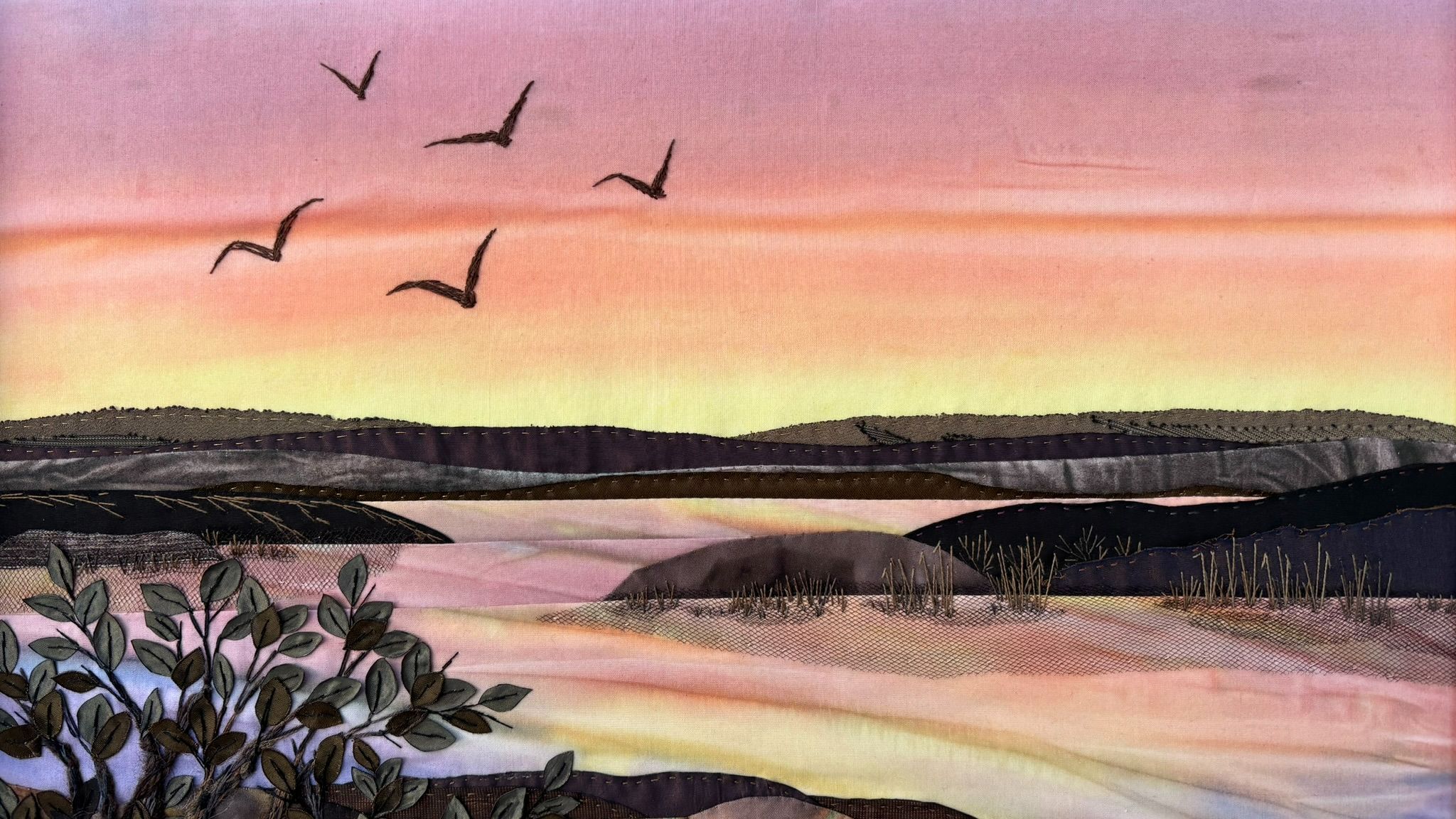
Cotton has always been the first choice for quilters, but the more I include synthetic fabrics in my landscape art, the more confident I am in promoting their addition to wall quilts. For years, I have used synthetic fabrics in the layers of my landscapes to add different finishes and textures to what would otherwise be a mainly matte and smooth cotton surface. I love the ease of stitching with cotton fabric, but there is a certain added dimension when synthetics are mixed in, that can be a powerful creative tool worth exploring in your process.
The first and most notable characteristic of synthetic fabrics is their shiny, often reflective nature. Under directional lighting, a synthetic element can become a focal point, create movement, or even add a luminous glow. Some iridescent fabrics shift colours as you move, making the wall quilts come alive as they are admired.
A good example of this was in the foreground shrub in my landscape, Glow Hard or Go Home.
I wanted the bush to be perceived as a silhouette against the sunset reflection, but using flat fabric or cotton embroidery floss was not creating enough texture. I began cutting out leaf shapes in a mix of three different synthetic fabrics, and I could immediately see this was the dimension I was missing!
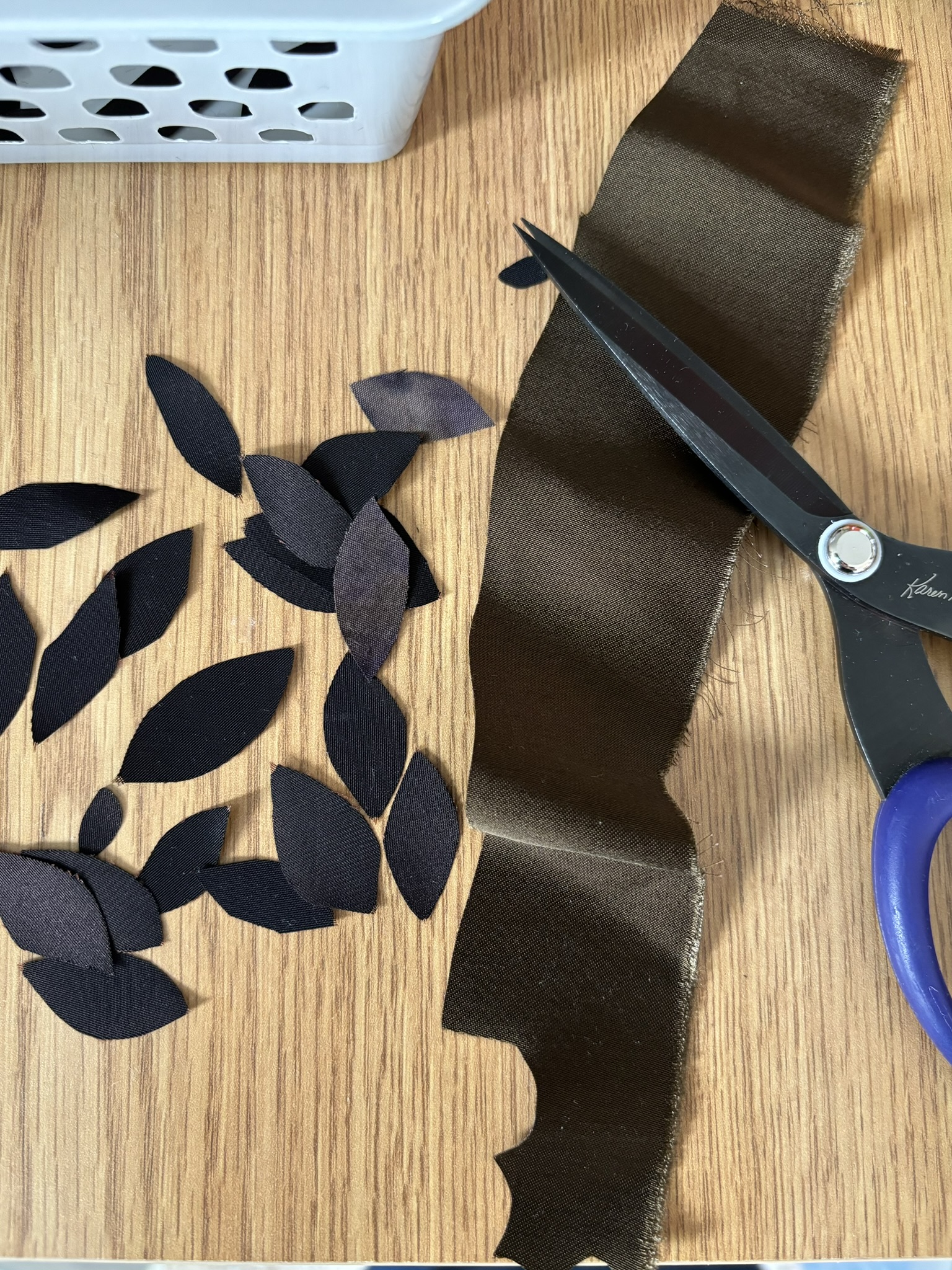
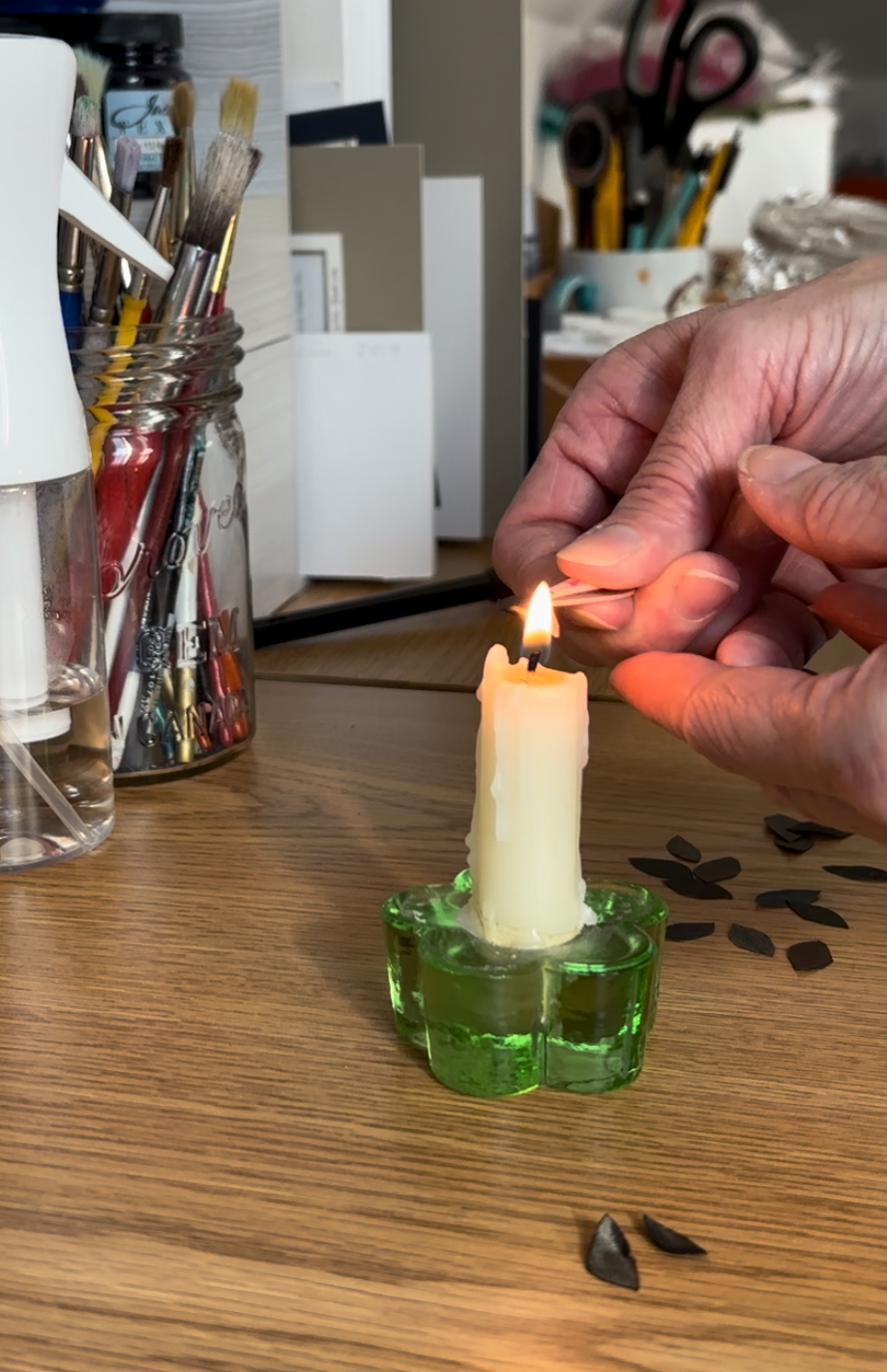
This highlights another benefit of having used synthetic fabric: it's willingness to hold shape. By using a synthetic fibre, the melted, distorted leaf shape would be permanent. I could handle it continuously to embroider the final branches without worrying about losing any of the sculpted shape.
Perhaps one of the biggest reasons I bring synthetic fabric into my work is the simplest one: they spark creativity. Trying new fabrics often challenges me to think differently about design, color, and other techniques to try. I look at synthetic fabrics in an entirely different way... how will they melt? tear? distort? reflect light? I still rely on painted and quilting cottons for a large part of my landscapes, but synthetics feel a bit more adventurous and full of possibility!
Adding even a small element... a metallic reflection, a sheer overlay, a sculpted detail—can take a project in a new direction and invigorate your artistic process.

